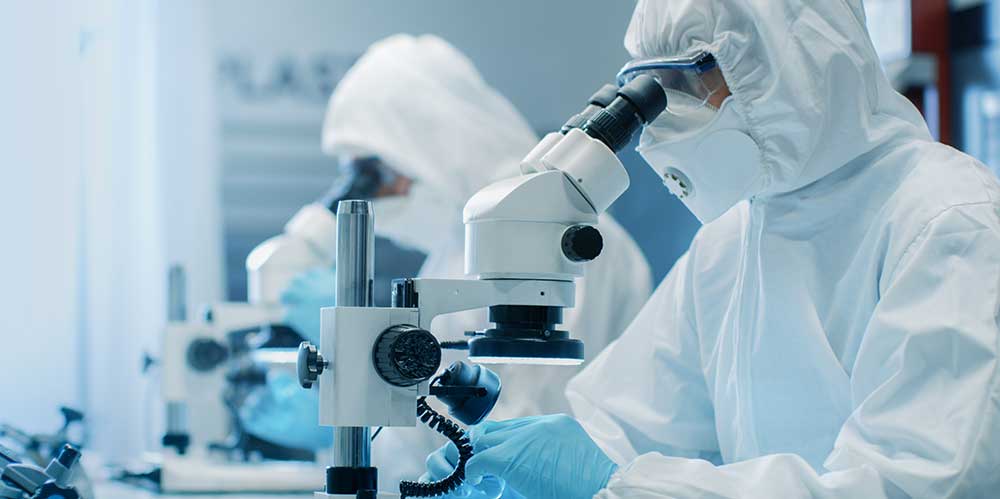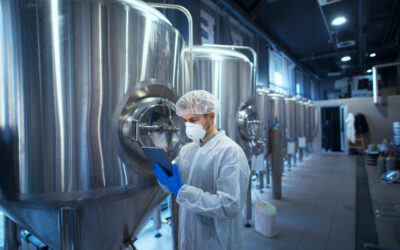Chemical engineering, with its unique blend of principles from chemistry, biology, physics, and mathematics, has been instrumental in developing and producing lifesaving pharmaceuticals. From the initial stages of drug discovery to the final steps of production and quality control, chemical engineers have played a crucial role in bringing effective medications to patients worldwide.
Chemical Engineering in Drug Discovery and Development
The journey of a drug from the lab to the pharmacy shelf begins with the discovery and development phase. Chemical engineers, often working alongside biochemists and pharmacologists, contribute to the design and synthesis of new drug molecules. They apply chemical synthesis, reaction kinetics, and thermodynamics principles to create new compounds with potential therapeutic effects.
Once a promising drug candidate is identified, chemical engineers help design the processes for its production. This involves scaling up the synthesis from the lab scale to the industrial scale, a complex task that requires careful control of reaction conditions to ensure the drug is produced efficiently, safely, and in high purity.
Chemical engineers also play a role in the formulation of drugs, which involves turning the active drug substance into a form that can be administered to patients, such as a tablet, a liquid, or an injectable solution. This requires a deep understanding of transport phenomena, materials science, and process engineering.
Chemical Engineering in Drug Production
In the production phase, chemical engineers are responsible for designing, operating, and optimizing the processes used to manufacture the drug. This involves the design of reactors for chemical synthesis, separation processes to purify the drug, and formulation processes to produce the final drug product.
Chemical engineers also work on ensuring the quality of the drug product. They design and implement quality control processes to test the drug for purity, potency, and stability. They also ensure the processes comply with Good Manufacturing Practice (GMP) regulations.
Bringing Lifesaving Medications to Patients
Chemical engineering’s contributions to the pharmaceutical industry are vast and varied. From drug discovery and development to production and quality control, chemical engineers have played a pivotal role in bringing lifesaving medications to patients. Their work has not only improved individual lives but has also significantly impacted public health. As we look to the future, the role of chemical engineers in pharmaceuticals will continue to be vital, whether in developing new drugs, optimizing production processes, or ensuring drug quality and safety.
Case Study: Production of Insulin
One notable example of chemical engineering’s contribution to lifesaving pharmaceuticals is the production of insulin, a critical drug for managing diabetes. Insulin was originally extracted from animal pancreas, an expensive process that could not meet the growing demand.
Chemical engineers, working alongside biologists, developed a new process using recombinant DNA technology. In this process, the gene for human insulin is inserted into bacteria or yeast, producing the insulin protein. Chemical engineers designed and optimized the fermentation processes for growing these cells and the downstream processes for purifying the insulin.
This biotechnological process, developed and scaled up by chemical engineers, has made it possible to produce large quantities of human insulin cost-effectively and sustainably. This has profoundly impacted the treatment of diabetes, improving the lives of millions of patients worldwide.
Case Study: Development and Production of COVID-19 Vaccines
Chemical engineers have contributed significantly to numerous industries and societal challenges. One notable example is their role in developing and producing life-saving pharmaceuticals.
The COVID-19 pandemic began in late 2019 and presented an urgent global health crisis. In response, pharmaceutical companies and research institutions worldwide embarked on an unprecedented race to develop effective vaccines. Chemical engineers played a crucial role in this effort.
In the development phase, chemical engineers, often with expertise in biochemical or biomedical engineering, were involved in designing and optimizing the processes used to produce the vaccine candidates. This included the production of mRNA for vaccines like those developed by Pfizer-BioNTech and Moderna and the cultivation of cells to produce viral vectors for vaccines like the one developed by AstraZeneca-Oxford.
Chemical engineers used their knowledge of reaction kinetics, mass transfer, and bioprocessing to scale these processes from the lab to the manufacturing scale. They also worked on optimizing these processes to maximize yield, minimize waste, and ensure the quality and safety of the vaccines.
In the production phase, chemical engineers designed and operated the facilities used to manufacture the vaccines. This included the design of bioreactors for the cultivation of cells, the design of purification processes to isolate the vaccines, and the design of filling lines to package the vaccines into vials. They also worked on supply chain management to ensure the efficient distribution of the vaccines.
Through their work, chemical engineers helped to accelerate the development and production of COVID-19 vaccines, contributing to a global vaccination effort that is saving millions of lives and helping to bring the pandemic under control.




